Blog Archive

What role can or should the European or national legislator play in ensuring gender balanced company boards?
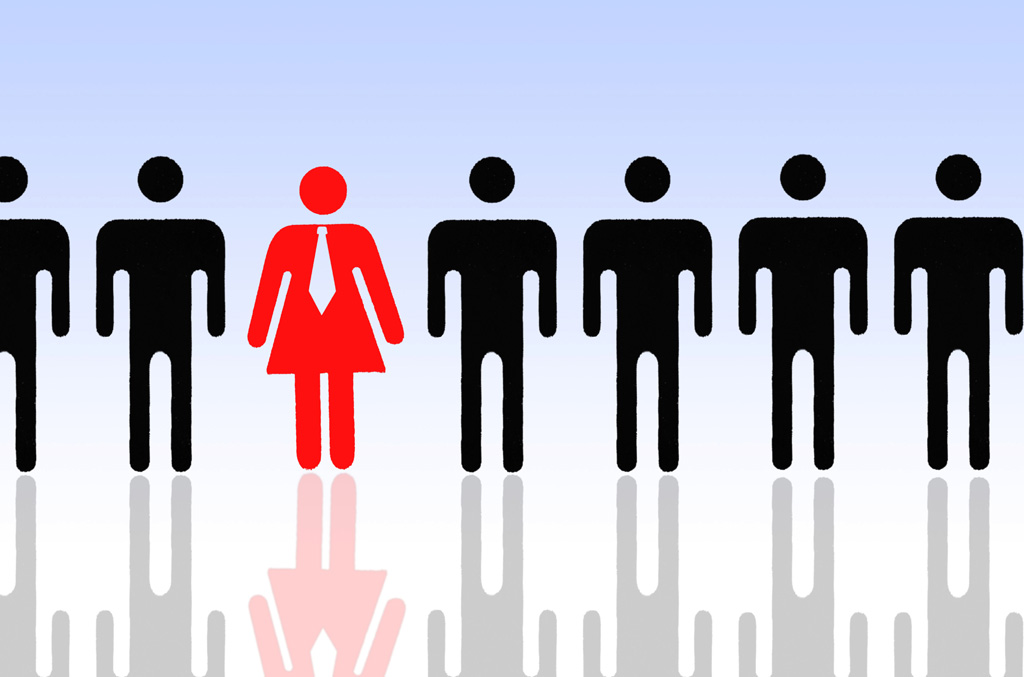 Equality between women and men is a fundamental principle of the European Union. However, there is still an unequal representation of women in decision-making positions in companies throughout the EU. Even though the situation has started to improve, women remain a minority at the top of the decision-making hierarchy. On Wednesday 9 December 2015, this issue will be discussed at the seminar on Gender Balanced Company Boards in the EU at Utrecht University.
Equality between women and men is a fundamental principle of the European Union. However, there is still an unequal representation of women in decision-making positions in companies throughout the EU. Even though the situation has started to improve, women remain a minority at the top of the decision-making hierarchy. On Wednesday 9 December 2015, this issue will be discussed at the seminar on Gender Balanced Company Boards in the EU at Utrecht University.
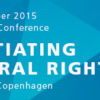
Negotiating Cultural Rights
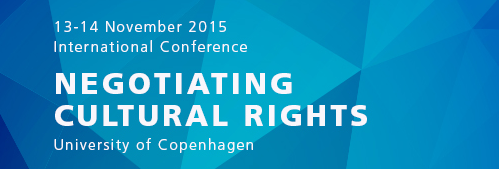 On Friday night, 13 November 2015, the terrorist attacks in Paris took place. Attacks on big city cultural life, spending the evening with friends in concert halls, café’s and bistros, a foodball stadium. That same night was the end of the first day of the International Conference Negotiating Cultural Rights in Copenhagen. This conference celebrated the end of the mandate of the Special Rapporteur (SR) in the field of cultural rights, Fareedah Shaheed, and the publication of eleven reports in the period 2010-2015. At the conference, we had just concluded that cultural rights had grown from the Cinderella of human rights into a beautiful princess. Today, it seems that this princess has to grow up even faster than expected, because we are in need of a Queen of Spades that stands for the protection of cultural rights.
On Friday night, 13 November 2015, the terrorist attacks in Paris took place. Attacks on big city cultural life, spending the evening with friends in concert halls, café’s and bistros, a foodball stadium. That same night was the end of the first day of the International Conference Negotiating Cultural Rights in Copenhagen. This conference celebrated the end of the mandate of the Special Rapporteur (SR) in the field of cultural rights, Fareedah Shaheed, and the publication of eleven reports in the period 2010-2015. At the conference, we had just concluded that cultural rights had grown from the Cinderella of human rights into a beautiful princess. Today, it seems that this princess has to grow up even faster than expected, because we are in need of a Queen of Spades that stands for the protection of cultural rights.

Een Europees consumentenlabel voor Israëlische producten uit de bezette gebieden: een maat voor niets?
 Vorige week besliste de Europese Commissie dat producten afkomstig van Israëlische nederzettingen op de Westelijke Jordaanoever en de Golanhoogte voortaan als zodanig gelabeldmoeten worden. In 2005 had de Europese Unie al beslist hogere invoerrechten te heffen op deze producten. De Commissie is van oordeel dat ze met het labelvereiste uitvoering geeft aan haar internationale verplichting om de bezetting van de Palestijnse gebieden niet te erkennen. Bovendien redeneert ze dat Europese consumenten niet mogen worden misleid over de ware oorsprong van deze ‘Israëlische’ producten. Het valt echter te betwijfelen of het internationaal recht de EU verplicht deze maatregel te nemen. Het is evengoed twijfelachtig of consumenten hun aankoopgedrag werkelijk zullen laten leiden door een ‘bezet gebied’-label, en of deze maatregel dus enige impact zal hebben.
Vorige week besliste de Europese Commissie dat producten afkomstig van Israëlische nederzettingen op de Westelijke Jordaanoever en de Golanhoogte voortaan als zodanig gelabeldmoeten worden. In 2005 had de Europese Unie al beslist hogere invoerrechten te heffen op deze producten. De Commissie is van oordeel dat ze met het labelvereiste uitvoering geeft aan haar internationale verplichting om de bezetting van de Palestijnse gebieden niet te erkennen. Bovendien redeneert ze dat Europese consumenten niet mogen worden misleid over de ware oorsprong van deze ‘Israëlische’ producten. Het valt echter te betwijfelen of het internationaal recht de EU verplicht deze maatregel te nemen. Het is evengoed twijfelachtig of consumenten hun aankoopgedrag werkelijk zullen laten leiden door een ‘bezet gebied’-label, en of deze maatregel dus enige impact zal hebben.

Referendum Oekraïne geen slechte zaak (zoals drie Utrechters beweren). En is parlementaire democratie dan wel zaligmakend?
 Het referendum van Geenpeil over het associatieakkoord tussen de Europese Unie, haar lidstaten en Oekraïne houdt de Utrechtse gemoederen aardig bezig. Maar liefst drie Utrechtse hoogleraren lieten zich de afgelopen weken publiekelijk over het referendum uit. Het begon met Linda Senden, enkele weken geleden in NRC Handelsblad en op dit blog. Hier kwam eind oktober Sybe de Vries bij, met een hartenkreet tijdens zijn oratie. Vorige week was daar tot slot nog hoogleraar mensenrechten Bas de Gaay Fortman die, geflankeerd door politicoloog Bob van den Bos, ook het podium van de opiniepagina van NRC Handelsblad beklom.
Het referendum van Geenpeil over het associatieakkoord tussen de Europese Unie, haar lidstaten en Oekraïne houdt de Utrechtse gemoederen aardig bezig. Maar liefst drie Utrechtse hoogleraren lieten zich de afgelopen weken publiekelijk over het referendum uit. Het begon met Linda Senden, enkele weken geleden in NRC Handelsblad en op dit blog. Hier kwam eind oktober Sybe de Vries bij, met een hartenkreet tijdens zijn oratie. Vorige week was daar tot slot nog hoogleraar mensenrechten Bas de Gaay Fortman die, geflankeerd door politicoloog Bob van den Bos, ook het podium van de opiniepagina van NRC Handelsblad beklom.

Evenwichtige contractvoorwaarden bij aanbestedingen: buiten het bereik van EU-harmonisatie?
De Aanbestedingswet 2012 is recentelijk geëvalueerd. Deze wet, die de Europese aanbestedingsrichtlijnen uit 2004 implementeert, bepaalt namelijk dat binnen twee jaar na inwerkingtreding de effecten van de wet worden onderzocht. Uit de evaluatie blijkt dat de wet enerzijds heeft geleid tot verbeteringen: de lasten voor ondernemers bij het meedoen met een aanbestedingsprocedure zijn verminderd en de wet heeft bijgedragen aan uniformering van regels. Anderzijds blijkt uit de evaluatie dat zeker nog verbeteringen nodig zijn. Dit geldt onder andere voor de evenwichtigheid van contractvoorwaarden, een element dat ook in toenemende mate onderdeel is van aanbestedingsregulering.
Read more
Over dieselgate en de strafrechtelijke handhaving van de geharmoniseerde financiële markten
 Het Duitse imago van Gründlichkeit heeft forse schade opgelopen. Na buitenlandse smeergeld affaires bij Siemens ligt nu Volkswagen onder vuur vanwege gesjoemel met emissiesoftware in miljoenen dieselauto’s. De zaak werd ontdekt door het US Environmental Protection Agency, maar inmiddels zijn ook Duitse en Franse autoriteiten strafrechtelijke onderzoeken gestart. De onderzoeken richten zich op overtredingen van de mileuregelgeving, maar het is evident dat hier ook andere vormen van organisatiecriminaliteit en fraudedelicten in het geding zijn. De Europese Commissie grijpt de affaire aan om opnieuw het belang van deugdelijke emissietests en handhaving op de agenda zetten. Dat had tot nu toe altijd op verzet gestuit, niet in de laatste plaats vanuit Duitsland. Sommigen dringen zelfs al aan op een Europese toezichthouder op de autobranche.
Het Duitse imago van Gründlichkeit heeft forse schade opgelopen. Na buitenlandse smeergeld affaires bij Siemens ligt nu Volkswagen onder vuur vanwege gesjoemel met emissiesoftware in miljoenen dieselauto’s. De zaak werd ontdekt door het US Environmental Protection Agency, maar inmiddels zijn ook Duitse en Franse autoriteiten strafrechtelijke onderzoeken gestart. De onderzoeken richten zich op overtredingen van de mileuregelgeving, maar het is evident dat hier ook andere vormen van organisatiecriminaliteit en fraudedelicten in het geding zijn. De Europese Commissie grijpt de affaire aan om opnieuw het belang van deugdelijke emissietests en handhaving op de agenda zetten. Dat had tot nu toe altijd op verzet gestuit, niet in de laatste plaats vanuit Duitsland. Sommigen dringen zelfs al aan op een Europese toezichthouder op de autobranche.
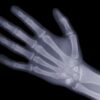
Botten liegen soms: De rol van medische technologie in de lotsbepaling van jonge migranten in Europa
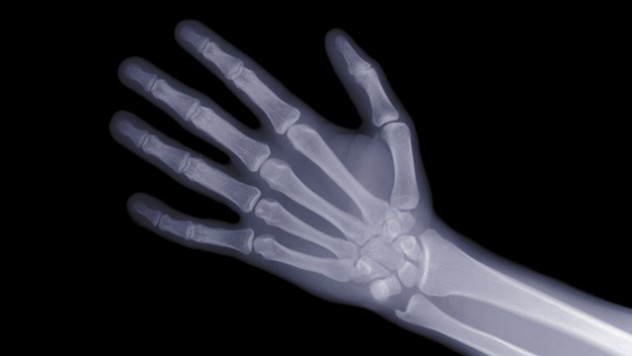 De recente onrust over Syrische vluchtelingen in ‘Fort Europa’ noopt ertoe (opnieuw) stil te staan bij de wijze waarop we invulling geven aan onze principes van humaniteit en de ‘plicht’ of wens hen te beschermen die dat nodig hebben. In het hedendaagse tijdperk van ontologische onzekerheid, (on)veiligheidsdenken of securitization, angst voor de ‘Ander’ en een daaruit voortvloeiende uitsluitende samenleving (naar de gelijknamige studie ‘The Exclusive Society’ van criminoloog Jock Young) staan die principes danig onder druk. Waar we voor vaders, moeders en kinderen die levensbedreigend geweld ontvluchten nog wel enige sympathie en een veilige plek in ons land kunnen opbrengen – zij het soms met moeite en vrees – is dat veel minder het geval voor economische migranten, helemaal als het jonge jongens betreft.
De recente onrust over Syrische vluchtelingen in ‘Fort Europa’ noopt ertoe (opnieuw) stil te staan bij de wijze waarop we invulling geven aan onze principes van humaniteit en de ‘plicht’ of wens hen te beschermen die dat nodig hebben. In het hedendaagse tijdperk van ontologische onzekerheid, (on)veiligheidsdenken of securitization, angst voor de ‘Ander’ en een daaruit voortvloeiende uitsluitende samenleving (naar de gelijknamige studie ‘The Exclusive Society’ van criminoloog Jock Young) staan die principes danig onder druk. Waar we voor vaders, moeders en kinderen die levensbedreigend geweld ontvluchten nog wel enige sympathie en een veilige plek in ons land kunnen opbrengen – zij het soms met moeite en vrees – is dat veel minder het geval voor economische migranten, helemaal als het jonge jongens betreft.

Going it alone – the EU adopts its own maritime emissions monitoring scheme as the IMO lags behind
 While the consequences of climate change have activists up in arms, the international community’s response has been fraught with stagnation, and remains somewhat disillusioning. After a series of disappointing Conferences of the Parties to the United Nations Framework Convention on Climate Change (UNFCCC), all hopes are set on the Paris summit to be held later this year. In the midst of this stalemate, the EU has been profiling itself as a protagonist of the global climate, with an ambitious Climate and Energy Package. In its latest move, the EU has adopted Regulation (EU) No. 2015/757 (‘the Regulation’), which came into force on 01 July 2015, and lays out a monitoring, reporting and verification scheme (MRV) for ships. The MRV requires ships to monitor their CO2 emissions according to a verified monitoring plan, and report the results to the Commission. This step has been on the EU’s agenda for over five years, and forms the first concrete phase of the inclusion of maritime emissions in the Union’s own reduction commitment. While according to the EU, the scheme would bring ‘momentum for international agreement’, the shipping industry reacted coolly, warning that the EU initiative risked putting multilateral negotiations ‘in jeopardy’.
While the consequences of climate change have activists up in arms, the international community’s response has been fraught with stagnation, and remains somewhat disillusioning. After a series of disappointing Conferences of the Parties to the United Nations Framework Convention on Climate Change (UNFCCC), all hopes are set on the Paris summit to be held later this year. In the midst of this stalemate, the EU has been profiling itself as a protagonist of the global climate, with an ambitious Climate and Energy Package. In its latest move, the EU has adopted Regulation (EU) No. 2015/757 (‘the Regulation’), which came into force on 01 July 2015, and lays out a monitoring, reporting and verification scheme (MRV) for ships. The MRV requires ships to monitor their CO2 emissions according to a verified monitoring plan, and report the results to the Commission. This step has been on the EU’s agenda for over five years, and forms the first concrete phase of the inclusion of maritime emissions in the Union’s own reduction commitment. While according to the EU, the scheme would bring ‘momentum for international agreement’, the shipping industry reacted coolly, warning that the EU initiative risked putting multilateral negotiations ‘in jeopardy’.

Referendum GeenPeil geen zaligmakende reddende engel
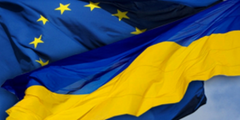 Geweldig dat burgers erin slagen meer dan 300.000 handtekeningen op te halen voor de organisatie van een referendum, maar jammer dat zij dit zien als hét redmiddel van de democratie en als dé manier om de machtsoverdracht aan de EU te stoppen.
Geweldig dat burgers erin slagen meer dan 300.000 handtekeningen op te halen voor de organisatie van een referendum, maar jammer dat zij dit zien als hét redmiddel van de democratie en als dé manier om de machtsoverdracht aan de EU te stoppen.
In die visie liggen twee belangrijke gedachten besloten: dat onze democratie in grote nood verkeert en dat machtsoverdracht aan de EU per definitie een slechte zaak is. GeenPeil legt daarbij de nadruk op het onvermogen van de politiek en het gebrek aan parlementaire grip op wat er in Europees verband wordt besloten. Er spreekt groot ongenoegen uit over hoe ons eigen parlementaire stelsel in EU-verband functioneert en een gebrekkig vertrouwen in hoe onze politici de belangen van burgers vertegenwoordigen. Het referendum gaat echter geen zaligmakende reddende engel zijn.
Read more
Facebook, the NSA and Data Protection: not so ‘frivolous and vexatious’ anymore? [i]
A look at the Advocate General’s opinion in Maximillian Schrems v Data Protection Commissioner.
 Your average Facebook-using EU resident, whilst often being blissfully unaware of the laws that apply to his or her personal data acquired by Facebook, has probably shown some concern about privacy rights, especially since the 2013 Snowden revelations. Then a young Austrian law student, Maximillian Schrems decided to take this concern further and in 2013 lodged a complaint with the Irish Data Protection Commissioner about Facebook transferring EU residents’ personal data to the US, where, he asserted, it was insufficiently protected. The complaint was rejected, and the case went before the Irish High Court and eventually the Court of Justice of the European Union (CJEU). CJEU Advocate General Yves Bot (AG) issued an opinion on 23 September, advising the Court in how to decide upon the case. Privacy activists, including Schrems, have welcomed this opinion and commentators are now rushing to speculate what the consequences will be. Whatever the eventual outcome, the AG’s opinion is in line with recent CJEU decisions that emphasise the importance of the fundamental right to data protection over other rights, freedoms, concerns and/or interests.
Your average Facebook-using EU resident, whilst often being blissfully unaware of the laws that apply to his or her personal data acquired by Facebook, has probably shown some concern about privacy rights, especially since the 2013 Snowden revelations. Then a young Austrian law student, Maximillian Schrems decided to take this concern further and in 2013 lodged a complaint with the Irish Data Protection Commissioner about Facebook transferring EU residents’ personal data to the US, where, he asserted, it was insufficiently protected. The complaint was rejected, and the case went before the Irish High Court and eventually the Court of Justice of the European Union (CJEU). CJEU Advocate General Yves Bot (AG) issued an opinion on 23 September, advising the Court in how to decide upon the case. Privacy activists, including Schrems, have welcomed this opinion and commentators are now rushing to speculate what the consequences will be. Whatever the eventual outcome, the AG’s opinion is in line with recent CJEU decisions that emphasise the importance of the fundamental right to data protection over other rights, freedoms, concerns and/or interests.


